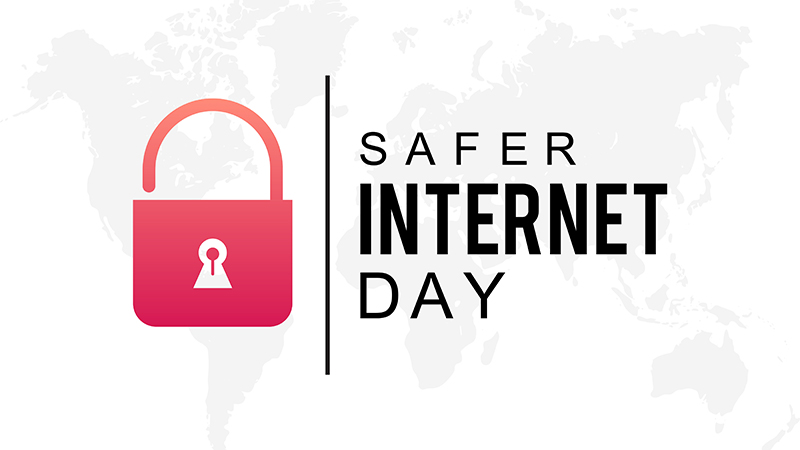
February 7th is the 20th Safer Internet Day, a day to focus on addressing ways to reduce the risks created by our now very online world. Painting the internet as an inherently dangerous place full of predators and … would be using too broad a brush. The internet is an amazing technology - an information sharing resource unrivaled in depth, breadth, and reach. Despite all the good, useful, and fun the internet brings, it has one major drawback: on the other end of the computer is a person.
Like any tool, the impact of its use depends on the user and people will find ways to misuse and abuse tools to further their own ends. Recognizing these risks, Safer Internet Day was created to help protect against the harms of those who use the internet for ill rather than good. Throughout its 20-year history, Safer Internet Day has focused on topics ranging from cyberbullying to managing a digital identity. For this year, privacy and information disclosure is an area I would like to explore.
Privacy and a Safer Internet
Privacy is an evolving concept and is both culturally and personally constructed. What one group or person considers private another may place on a bumper sticker on their car. What was deemed private thirty years ago is now readily posted on the internet and easily found by anyone around the world with a cell phone and a data plan. What changed? Information gathering technology. Prior to the internet, it was much easier to keep a phone number, address, or name private – or at least limit the number of people who had easy access to that information.
As information shifted from being stored on paper to being stored on hard drives and then connected to homes and offices via computers, that valuable data became accessible to people, companies, and groups who wanted to use it for their own purposes. Some of those purposes were benign and even good – connecting long lost friends and family, finding a location in a distant town – and others less so – stealing an identity for fraudulent gain.
On one side of the equation were people willing to give up their information to make their lives easier and on the other those eager to use that information for profit. A seemingly fair exchange and one that has powered the twenty-first century. If we had it to do over again, we may have chosen differently and laws like the General Data Protection Regulation (GDPR) and the California Consumer Privacy Act show some of that buyer’s remorse. Despite those attempts, our personal data is now a part of the internet, so how do we protect it and create a safer internet for ourselves?
Protecting Personal Data
Personal data is the currency that powers many of the world’s largest tech companies and, realistically, it is difficult not to give it away. If you want to buy something, you need to supply a name, address, phone number, credit card information, and often an email address. Social media sites leak even more data for those willing to provide it – marital status, gender, personal photos, interests, political and religious beliefs, affinity groups – all useful data for advertisers and social engineers.
While it may not be possible to avoid giving personal data away, here are some considerations for keeping it safe:
- Limit where data is stored
It may seem convenient when that online store wants to save your data to avoid entering it again but consider whether that is worth the risk. If that website is ever compromised, your data may be as well. The few extra seconds it takes to enter the data again could save you having to deal with identity theft in the future. This goes double for credit card or other payment. Once you give it away, you have lost control over it and put your trust in wherever you allow that to be stored. Another benefit of adding some inconvenience to your purchases – you may save some money when that impulse buy comes up and you can’t just one-click purchase. It won’t protect your privacy, but it may help your wallet.
- Be careful what you post
Everything you post to a social media site can (and will) be used to target you. This targeting isn’t always malicious; advertisers and content algorithms want to be relevant for their own ends. However, decide whether you really want the entire world to have access to that content or limit it to just your friends, family, and followers. The platform will still have access to your content so a data breach may still expose your information, but keeping data to a small group will limit your exposure in most cases.
If you avoid posting on social media altogether, that limits your exposure even further. Rember, though, that even the things you follow, like, and re-post are building up a set of data about you as well as supplying a means for unwanted attention if your profile is public.
- Unplug
One of the best ways to stay safe on the internet is to avoid using it all. This suggestion is focused on mental health and finding other ways to connect to those around you. It may not be possible to fully disconnect, but limiting social media consumption and the constant barrage of content gives your mind and body a rest. Taking a break from online activity may not make the internet a safer place but it’s great for good physical and mental health. It allows us to disconnect from the virtual world, reduce screen time, and focus on building real-life relationships and engaging in meaningful activities.
The internet has revolutionized the way we share and access information, but it also has a major drawback as it exposes our personal information to potential risks. Safer Internet Day was created to raise awareness of these risks and help protect people from harm.
Personal data is valuable to tech companies and advertisers, but it's important to take steps to protect it, such as limiting where data is stored, being careful about what we post online, and unplugging from the internet for mental health.
While it may not be possible to fully avoid giving away personal information, it's important to consider the consequences and take steps to protect it to ensure a safer internet.
Meet Fortra™ Your Cybersecurity Ally™
Fortra is creating a simpler, stronger, and more straightforward future for cybersecurity by offering a portfolio of integrated and scalable solutions. Learn more about how Fortra’s portfolio of solutions can benefit your business.

